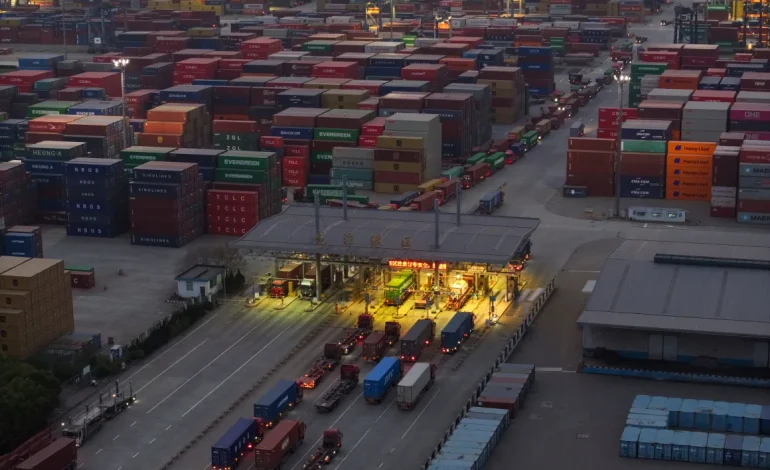Financial markets experienced another wave of turbulence as stocks across the globe declined sharply and bond yields surged, reflecting investor unease over new trade tariffs and economic uncertainty.
The downturn, which extended into Wednesday, saw major stock indexes in Europe and Asia drop following the implementation of significantly higher import taxes on goods entering the United States. The S&P 500 in the US approached bear market territory, a sign of sustained investor pessimism.
Asian markets were particularly affected, with Taiwan’s stock index falling over 5%, while Japan’s benchmark index dropped more than 3%. South Korea also experienced losses, while Hong Kong’s market remained flat and Shanghai saw slight gains. Meanwhile, European stocks mirrored the losses, with London’s FTSE 100, Germany’s DAX, and France’s CAC 40 all declining by over 2%.
The selloff extended beyond equities, with US government bonds also experiencing sharp declines. The yield on the 10-year Treasury note rose to 4.38%, while 30-year Treasury yields climbed from 4.4% to 4.8% over just a few days. Analysts suggest that the bond market’s volatility could be driven by investor uncertainty, forced liquidations, and concerns over Federal Reserve policy.
The increased market volatility follows the implementation of higher tariffs imposed by the US on key trading partners, including China. The new import taxes, some exceeding 100%, have raised concerns about global trade disruptions and economic slowdowns.
China responded with retaliatory tariffs of up to 84% on American goods, escalating trade tensions. The uncertainty surrounding these policies has led analysts to predict potential downward revisions in global economic growth forecasts.
With input from CNN, FOX Business, and the New York Times.










The latest news in your social feeds
Subscribe to our social media platforms to stay tuned